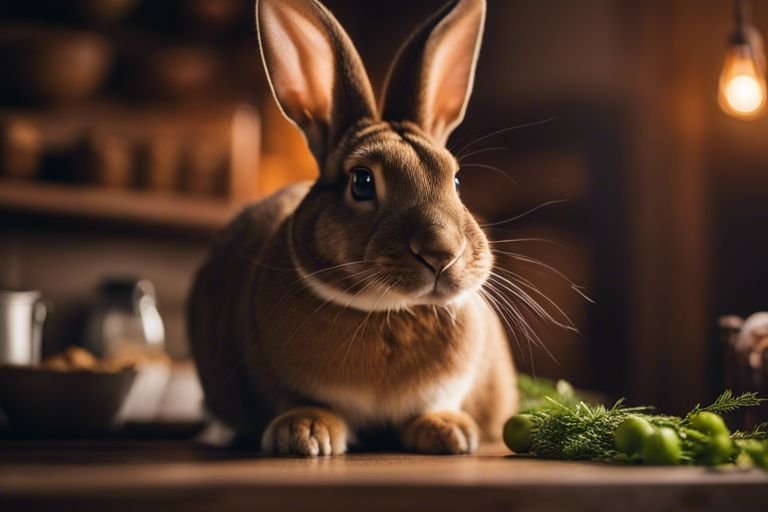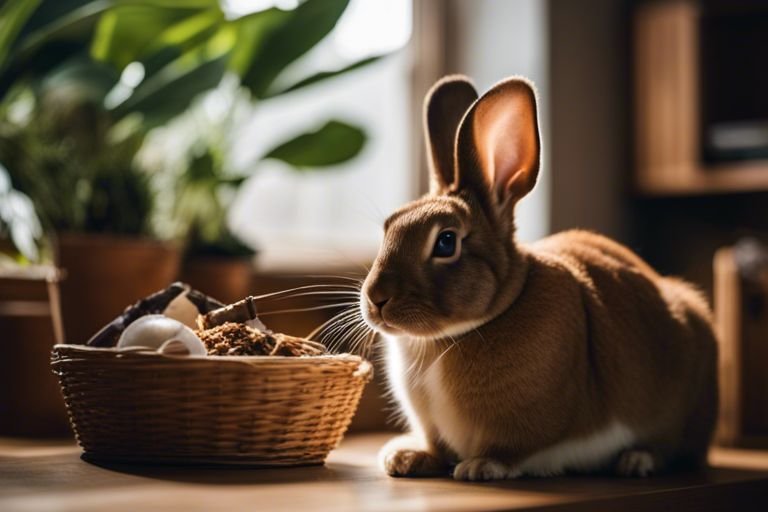Do you have a Flemish Giant rabbit that is experiencing whisker loss? This can be a concerning issue for many owners, but there are steps you can take to prevent or treat this problem. Whisker loss in rabbits can be caused by a variety of factors such as stress, poor nutrition, or skin infections. It is important to take action to address this issue as whisker loss can impact your rabbit’s ability to navigate and sense its environment. In this blog post, we will discuss some prevention and treatment methods for whisker loss in Flemish Giant rabbits, giving you the information you need to ensure the health and well-being of your beloved pet.
Key Takeaways:
- Proper Diet: Ensuring your Flemish Giant rabbit is getting a balanced diet with sufficient nutrients, including vitamins and minerals, can help prevent whisker loss.
- Hygiene: Regularly clean your rabbit’s living space and grooming their whiskers can help prevent whisker loss and maintain their overall health.
- Veterinary Care: Regular check-ups with a rabbit-savvy veterinarian can help identify any underlying health issues that may be causing whisker loss and provide appropriate treatment.
- Stress Reduction: Minimizing stressors in your rabbit’s environment can help prevent whisker loss, as stress can contribute to health issues in rabbits.
- Avoid Harsh Handling: Handling your Flemish Giant rabbit gently and avoiding harsh pulling or tugging on their whiskers can help prevent breakage and loss of whiskers.

Understanding Whisker Loss
Any rabbit owner can attest to the adorableness of a Flemish Giant rabbit’s long, luxurious whiskers. These sensitive, tactile hairs play a crucial role in helping your rabbit understand its environment, navigate its surroundings, and communicate with other rabbits. So, when you notice your Flemish Giant rabbit experiencing whisker loss, it’s essential to understand the potential causes and how to address this issue.
Normal Whisker Growth and Shedding
Your Flemish Giant rabbit’s whiskers grow to an average length of 5-6 inches and generally go through a natural shedding process every few months. Just like the fur on their bodies, whiskers will be replaced with new, healthy ones over time. This shedding process is a normal part of your rabbit’s grooming routine, and you may notice extra whiskers around their living area as they shed and regrow them.
Common Causes of Abnormal Whisker Loss
While occasional whisker shedding is normal, excessive or abnormal whisker loss can be an indicator of an underlying health issue for your Flemish Giant rabbit. Some common causes of abnormal whisker loss may include stress, poor diet, skin infections, mites, or other health conditions. If you notice your rabbit’s whiskers are thinning or falling out at an unusual rate, it’s important to consult with a veterinarian to rule out any potential health concerns and address the issue effectively.

Preventative Measures for Whisker Health
While there are various reasons why your Flemish Giant rabbit may experience whisker loss, there are several preventative measures you can take to promote whisker health. It’s important to be proactive in caring for your rabbit’s well-being to avoid potential issues. To learn more about the possible reasons for whisker loss and how to address them, check out this article on 15 Reasons Your Rabbit is Losing Patches of Fur.
Optimal Diet for Whisker Growth
One of the key factors in maintaining healthy whiskers for your Flemish Giant rabbit is providing an optimal diet. A well-balanced diet that includes high-quality hay, fresh vegetables, and a limited amount of pellets will support overall health, including whisker growth. Additionally, supplements such as biotin can be beneficial for promoting healthy fur and whiskers.
Safe and Healthy Living Environment
Ensuring that your rabbit’s living environment is safe and healthy is crucial for preventing whisker loss. Regularly cleaning the living space will help eliminate any potential allergens and irritants that could affect your rabbit’s whiskers. Providing a quiet and stress-free environment will also contribute to your rabbit’s overall well-being, including the health of their whiskers.
Treatment Options for Whisker Loss
After identifying the cause of your Flemish Giant rabbit’s whisker loss, it’s important to focus on treatment options to address the issue and ensure your rabbit’s well-being. There are several measures you can take to treat whisker loss in your rabbit, including veterinary care and medications as well as home remedies and supplements.
Veterinary Care and Medications
If your Flemish Giant rabbit is experiencing whisker loss, it’s crucial to seek veterinary care for a thorough examination and accurate diagnosis. Your veterinarian may recommend specific medications or topical treatments to address any underlying medical conditions that may be causing whisker loss. This could include antibiotics for infections, antifungal medications for fungal infections, or anti-parasitic treatments for mite infestations. It’s important to follow your veterinarian’s advice and administer any prescribed medications as instructed to ensure the best possible outcome for your rabbit’s whisker regrowth.
Home Remedies and Supplements
In addition to veterinary care, there are certain home remedies and supplements that may help promote whisker regrowth in your Flemish Giant rabbit. Regular grooming and brushing can help stimulate blood flow to the hair follicles, supporting healthy whisker growth. You can also consider adding a high-quality, rabbit-specific supplement to your rabbit’s diet, such as Omega-3 fatty acids or biotin, to support overall coat health and promote whisker regrowth. However, always consult your veterinarian before introducing any new supplements to your rabbit’s diet to ensure they are safe and appropriate for your rabbit’s specific needs.
Taking this into account
By ensuring your Flemish Giant rabbit has a well-balanced diet with plenty of fresh hay, leafy greens, and vegetables, you can prevent whisker loss. Additionally, providing a spacious and comfortable living environment will reduce the stress that can lead to whisker loss. If you notice your rabbit experiencing whisker loss, consult with a veterinarian for proper diagnosis and treatment. Ensuring your rabbit’s overall health and well-being will help prevent and treat whisker loss in Flemish Giants.
FAQ
Q: What causes whisker loss in Flemish Giant rabbits?
A: Whisker loss in Flemish Giant rabbits can be caused by various factors such as stress, nutritional deficiencies, genetics, environmental factors, or medical conditions. It is important to identify the specific cause in order to effectively prevent or treat whisker loss.
Q: How can you prevent whisker loss in Flemish Giant rabbits?
A: To prevent whisker loss in Flemish Giant rabbits, it is essential to provide a balanced diet that includes adequate amounts of essential nutrients such as vitamins, minerals, and protein. Additionally, create a stress-free environment, provide regular grooming, and ensure proper hygiene in the rabbit’s living space to minimize the risk of whisker loss.
Q: How can you treat whisker loss in Flemish Giant rabbits?
A: If your Flemish Giant rabbit is experiencing whisker loss, it is important to consult with a veterinarian to determine the underlying cause. Treatment may involve addressing any nutritional deficiencies, managing stress, or addressing any medical conditions that may be contributing to the whisker loss. Additionally, providing a supportive and comfortable environment for the rabbit can aid in the recovery of whiskers.
